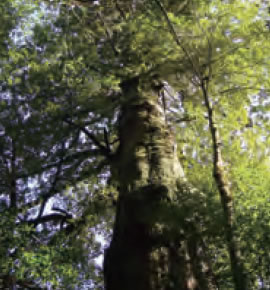Subjects from Three Fields
Culture and Tourism
Is globalization destroying regional culture? How will people’s sense of place change among increasing migration and movement? Tourism is credited for improving intercultural understanding and contributing to the preservation of nature and culture. However, isn’t there a danger of destroying the environment and turning culture into a mere spectacle? To tackle these questions, we will nurture the ability to discuss the relations between people and culture in a global society, between tourism and local communities, between thought and culture, and between Japanese culture and the world.
Peace and Communication
Do we all equally receive benefits from globalization? Could it be that, as the society is globalizing, the differences in world views, and values, and the conflicts relevant to economic profits and political predominance will increase? We need to overcome such issues with the collective wisdom of the human race and mutual understanding in order to establish world peace. In IGS, you will explore backgrounds and causes underlying such conflicts and appreciate differences among diversified culture and language groups. Such skills are necessary in order for us to live in peaceful and harmonious society.
Environment and Society
Are you keen to make a contribution to solve the current environmental problems we are now facing? Are you willing to learn how to create more effective ways to use our limited resources and energy? In order to pursue these important objectives, you need not only have broad knowledge of the natural sciences, but also have knowledge of social sciences, economics, and the environmental sciences. In IGS, you will learn the connection between these subjects and will seek new ways to bridge human society and the natural environment.
IGS Study Plan Examples
Study Plan 1: If you want to contribute to regional and cultural development through tourism, you are encouraged to take:
- Tourism Studies in order to learn the basics of tourism from different angles;
- Japanese Tourism and Issues and in International Tourism in order to discover the effects and problems of tourism;
- Japanese Popular Arts and Culture and anthropology subjects in order to think about the relationship between culture and globalization.
Finally, consider ways tourism can contribute to regional development through fieldwork and your thesis to prepare you for a career in cultural organizations, tourism industries or as civil servant.

Courtesy of Hiroshima Prefecture
Study Plan 2: If you are interested in conflict resolution from a multi-cultural perspective, you are encouraged to take:

- Peace and Conflict Research and Ethics in order to obtain background knowledge concerning military conflicts especially in Asia, Middle East, and Africa;
- Cultural Psychology, and Language and Thought in order to be aware that other have distinct world views and values as well as cultural and linguistic diversity;
Possible future career opportunities include becoming an international civil servant, a diplomatic official and other positions at internationally-deployed private enterprises including travel industries and media.
Study Plan 3: If you are interested in preserving nature and biodiversity, you are encouraged to take:
- Natural Histories and Sciences in order to gain solid knowledge about structure of nature; Ecology and Society, and Conservation of Biodiversity in order to learn the current status of biodiversity, and the rationale and means to protect it;
- Natural Disasters and Society, and Environmental Economics and Policy to study the relationship between human society and the environment
s.
These courses should help you understand how to build social structures which support the conversation of nature and biodiversity and enable you to work in international nature conservation, as civil servant or in the consulting sector.


 Home
Home